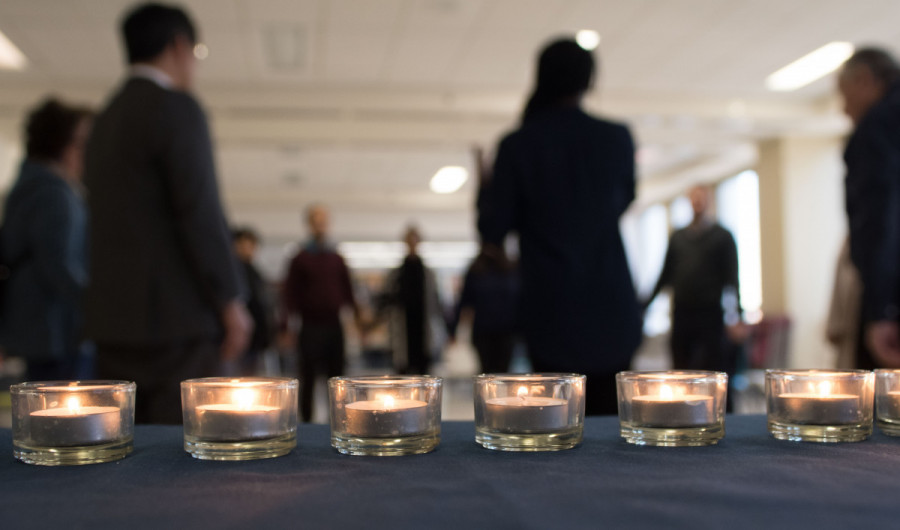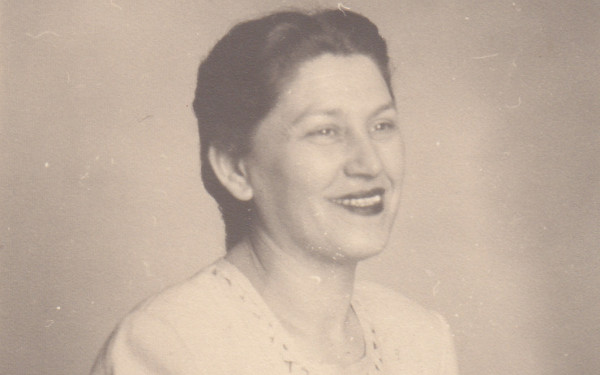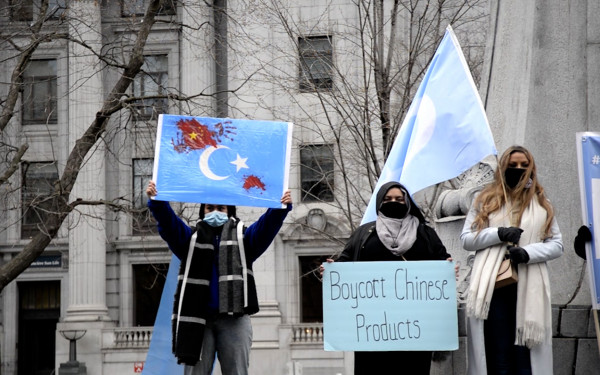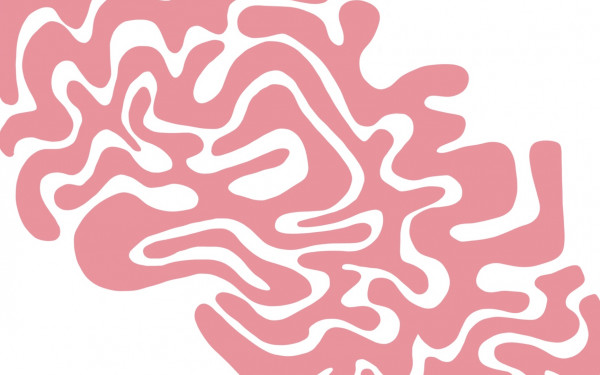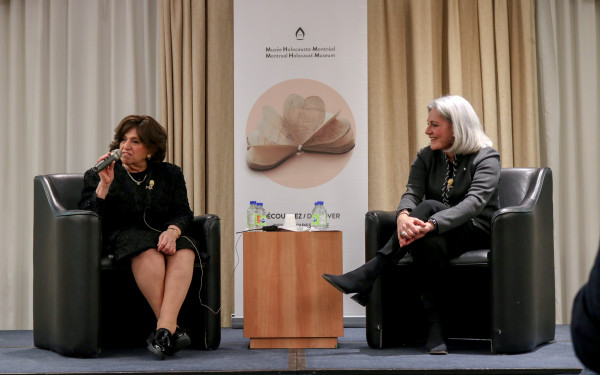Concordia Commemorates Quebec City Mosque Shooting
Holocaust and Rwandan Genocide Survivors Spoke to Fight Hatred
The Concordia community gathered on Jan. 29 for the third annual Interfaith Commemoration of the 2017 Quebec City Mosque shooting.
The shooting happened on Jan. 29 three years ago, killing six Muslim men and injuring 19 others at the Islamic Cultural Centre of Quebec City. The perpetrator opened fire on the crowd after the end of evening prayers.
The event, organized by the Concordia Student Union, focused on condemning hate and extremism. Amongst its speakers were Holocaust survivor Fishel Goldig and Rwanda Genocide survivor Jacques Rwirangira.
“Hatred is hatred, no matter to whom,” said Goldig. “Whether it’s anti-Semitism—which is just hatred towards Jews, that’s all it is—or it’s hatred towards Black people, or it’s hatred towards Muslims or Chinese people, it’s all hatred and it’s usually perpetrated by the same individuals.”
At 86 years old, Goldig stood tall as he told the story of how he survived the horrific events of the Holocaust.
For Goldig, this is more than just sharing his story, it is a moral duty he hopes to pass on to new generations in the greater fight against rising trends of hate and extremism.
“We’re not going to be around—the survivors, I mean—much longer,” he said. “That’s just life, we have to die. But what I want, what I expect and hope for, is for you young people to take up the fight that I have put up my whole life to eliminate and eradicate hatred.”
Rwirangira gave a speech on the nature of genocide and its stages, emphasizing for each stage the methods of prevention and the importance of international awareness on the subject.
“If we don’t live together, we’re going to have wars, and we’re going to have genocides, and we’re going to have holocausts.” —Fishel Goldig
Elder Vicky Boldo, from the Aboriginal Student Resource Centre, performed a traditional women’s healing song, followed by some words on the effects of hatred and marginalization on aboriginal communities in Canada.
“I would not have been allowed to be in this building, nor would any of our Indigenous students. I wouldn’t have had the right to vote as an Indigenous woman and to this day anybody who is a status First Nation, you get a number when you are born,” she said. “The Indian act has been adapted in Canada but it’s still alive and well. It continues to create, promote and perpetuate hatred and inequality and a lot of fear.”
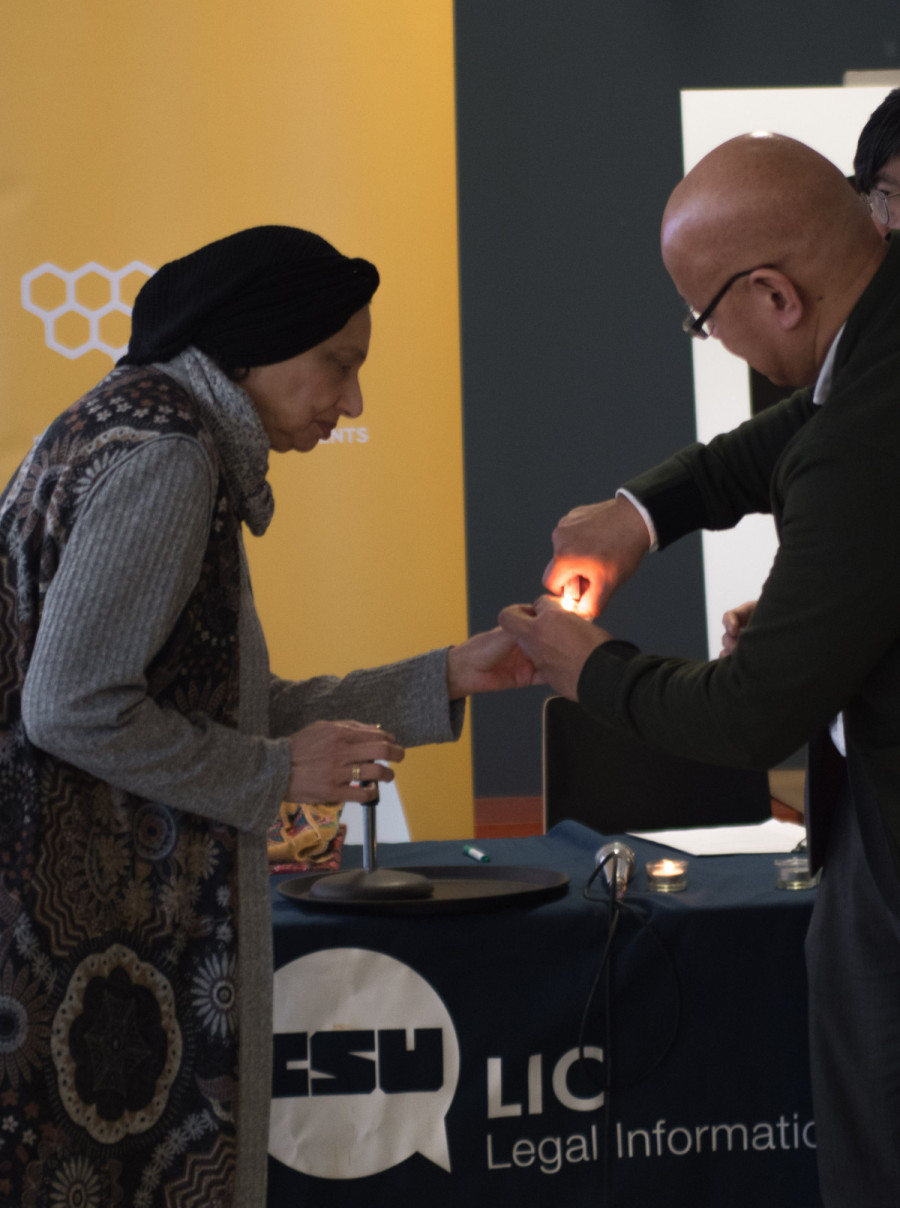
Ellie Hummel, Coordinator for the Multi-faith and Spirituality Centre at Concordia, spoke to affirm our need for understanding and the importance of this commemoration.
“What an opportunity we have here at Concordia, an opportunity to heal,” she said.
The event concluded with a moment of silence, as well as the lighting of seven candles. Six of them for each of the men killed in the massacre three years ago, and the seventh in honour of all victims of hate crimes.
“This event was very touching and powerful. Especially the testimony of Mr. Goldig, his words were so moving, I feel like they really struck a nerve for me,” said Danielle Dubuc, a Concordia Alumna.
“If we don’t live together, we’re going to have wars, and we’re going to have genocides, and we’re going to have holocausts. All of this stuff is because we are negative and not positive about living together,” Goldig said in closing. “There is a better way, that’s what I want to say. Let us live together.”
A previous version of this article did not address the organizers of the event. The Link regrets this error.

